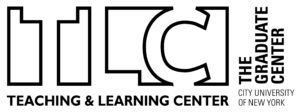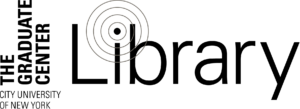Carnegie Educational Technology Fellows
Fall 2021 Workshop Schedule
October 14, 2021 (11:00AM to 12:30PM)
Learning through sound: podcasts, soundscapes, and soundwalks in the classroom
Facilitated by Agustina Checa and Zahra Khalid
Using sound in the classroom can complement traditional (visual-centered) learning. There are many ways to incorporate sound in content delivery as well as in student work. Doing so can help students who struggle with writing assignments, and inspire others to engage with class content in novel ways. This workshop will discuss the pedagogical promise of sonic media: the benefits to using these as an alternative to readings and/or lecture videos; how to build them into student projects; and recommendations to get started.
Register for the workshop here
October 18, 2021 (2:00 PM to 3:00 PM)
Incorporating Science Communication Principles into Coursework
Facilitated by Jason Block and John Zayac
Topics rooted in scientific knowledge, such as the ongoing pandemic and climate change, are increasingly important across academic disciplines. As a global community, we are witnessing how critical effective science communication is to public understanding and actions. The need to hone these skills is essential not only to scientists, but also to those involved in science-based policy and social justice movements. In this workshop we will discuss foundational principles of science communication and how to incorporate them into courses at both the graduate and undergraduate levels . We will share examples of activities and assignments and work as a group to identify opportunities for practice in each of our syllabi.
Register for the workshop here
October 22, 2021 (11:00AM to 12:30PM)
Asynchronous Interaction in Course and Platform Design
Facilitated by Seth Graves
“Asynchronous” and “synchronous,” as terminologies for pedagogical modes, have transitioned from a previous niche of online pedagogy to universal discourse that’s sticking around. Remote learning challenged instructors to rethink the role of live interaction and uses of synchronous time. At the same time, faculty have shared their frustrations in trying to anchor asynchronous interactions as central classroom discourse instead of superfluous accompaniment. This workshop will explore integrations of asynchronous digital engagement (like course websites, blogging, discussion posts, check-ins, messaging platforms, or multimodal responses) into course designs for both online and offline graduate and undergraduate teaching—and invite participants to share their own experiences and insights.
Register for the workshop here
October 25, 2021 (11am – 12:15pm)
Transforming academic texts into video story-telling
Facilitated by Mike Mena
In this workshop, Mike Mena will offer a step-by-step guide to transforming one theoretical keyword, concept, or text into an engaging video story. In this pedagogical approach, Mike will encourage participants to imagine themselves as video biographers who transform authors of academic texts into “characters” and the text itself as emerging from a particular constellation of societal conditions. Often there are stories that run parallel to the emergence of a theoretical concept. At times, they are connected to larger social narratives and at other times directly part of an author’s life experience. By leveraging and emphasizing this proposition, Mike illustrates how he transformed the concept “interest convergence” (Bell 1980) into a “biography” that students enjoy.
Register for the workshop here
See Mike’s Video Work: www.SocialLifeofLanguage.com
November 2, 2021 (1:00PM-2:15PM)
Fostering Engagement and Participation Using Multi-modal Learning
Facilitated by Francisco Medina
The shift to online/hybrid learning during the on-going pandemic provides a space to reflect on the limitations of traditional pedagogy. In this workshop, we will explore the concept of multii-modal pedagogy to foster engagement and accessibility in the online/hybrid classroom through the use of interactive live surveys and questionnaires (i.e. mentimeter) and by creating assignments that allow for multiple forms of engagement such as zines, poetry, comics, art work, social media videos, and infographics. We will also reflect on how different modalities enable a different kind of learning that might not be possible with traditional essay writing.
Register for the workshop here
November 11, 2021 (1:00-2:30 pm)
Teaching Physical and Social Science courses with Open Access Materials
Facilitated by Miryam Nacimento and John Zayac
In this workshop, we will introduce participants to Open Educational Resources (OER) with the objective of creating zero-cost syllabi for introductory courses within the physical and social sciences. Participants will learn how to find and use openly licensed resources and incorporate open access platforms into their everyday teaching practice (i.e., Manifold). In addition, we will discuss key open pedagogy concepts (licensing, copyright, and fair use), advantages, and pedagogical implications of OER initiatives.
Register for the workshop here
Past workshops: Spring 2021 Workshop Schedule
Top 5 Tips & Tricks to Improve Your Class Videos
March 5th (11:00am-12:30pm)
with Mike Mena
Description: Creating a video lecture is a complicated task, but the video production basics remain the same—and, they are pretty simple! Facilitator Mike Mena has assembled a “Top 5 Tips & Tricks” list to give your videos a boost in quality. Attendees will leave knowing what to prioritize in terms of audio/video quality. Mike will also recommend an excellent “budget” microphone.
Register for the workshop here
For more information on this workshop
Whiteboard Solutions for the Digital Classroom
March 15th (2:00-3:00 pm)
with Jason Block and John Zayac
Description: We will discuss many different methods for doing what would normally be done on a classroom chalkboard. We will describe in detail the best way to carry out each method, as well as both necessary and optional software/hardware needed for each method. The methods discussed will range from low tech (filming yourself at a physical whiteboard, filming a piece of paper as you write on it, using a zoom/blackboard digital white board) to higher tech (using collaborative digital whiteboards, using an infinite space whiteboard, using a wacom).
Register for the workshop here
For more information on this workshop
Digital Ethnography Series
Introduction to Digital and Remote Ethnography
March 10th (12:00-1:30pm)
with Agustina Checa and Miryam Nacimento
Description: The workshop will provide an overview of the theoretical foundations, methods, and debates of both applying ethnographic methods in online worlds and using digital tools to complement traditional ethnographic research. The workshop is also meant to provide attendants with strategies for conducting remote research as an alternative for traditional fieldwork which may be impacted by COVID-19-related restrictions.
Register for the workshop here
For more information on this workshop
Digital Ethnography: Finding and Working with Online Data
March 25th (12:00-1:30pm)
with Agustina Checa and Miryam Nacimento
Description: This workshop builds from the theoretical considerations explored in the first workshop of the Digital Ethnography series. It provides an overview of practices and digital tools for retrieving different sets of data from online social worlds and explores more pragmatic considerations such as how to store this information and how to incorporate practices of digital ethnography into IRB protocols. Participants will learn from the projects of researchers at the GC who are applying practices of social media scraping and digital ethnography in their work.
Register for the workshop here
For more information on this workshop
Web Scraping with Python (bs4) (in collaboration with the GC Digital Initiatives)
April 19th (12:00-1:00pm)
with Filipa Calado from GC Digital Initiatives
This workshop explores a Python library that allows users to work with and analyze web-based data. The Beautiful Soup (bs4) Python library enables users to pull data out of web pages made of HTML and XML. They can then use bs4 to search, categorize, and structure HTML and XML documents. Bs4 is relatively lightweight and easy to get up and running, and we will practice scraping popular websites like the New York Times. Though bs4 offers a beginner-friendly approach to web scraping, some basic familiarity with Python and HTML is highly encouraged. NOTE: This workshop is also included as part of GC Digital Initiatives Workshops.
Register for the workshop here
For more information on this workshop
Accessible Practices Across Platforms Series
Accessible Online Learning Workshop, Part I (Synchronous Spaces)
March 12th (11:00 am-12:15 pm)
with Zahra Khalid and Seth Graves
Description: In Part I of this two-part workshop on fostering accessible and inclusive teaching in online contexts, we will discuss strategies for fostering inclusivity and accessible engagement in synchronous spaces (such as Zoom), using active learning techniques.
Register for the workshop here
For more information on this workshop
Accessible Online Learning Workshop, Part II (Asynchronous Spaces)
March 19th (11:00am-12:15pm)
with Francisco Medina and Mike Mena
Description: In Part II of this two-part workshop on fostering accessible and inclusive teaching in online contexts, we will discuss strategies for asynchronous spaces such as course reading and writing platforms, websites, discussion boards, chat platforms, and recorded materials.
Register for the workshop here
______________________________________________
For more about the Carnegie Educational Technology Fellows
For more information on our support services
For any other questions, please contact: Stephanie Love, Program Coordinator: slove@gradcenter.cuny.edu






